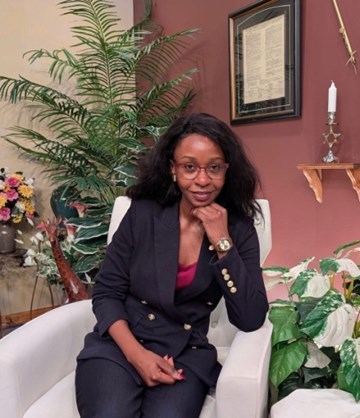

Across the world, millions of orphaned children wake up each day carrying an invisible burden; the weight of being unwanted, unseen, and unloved. They live among us, yet they are treated as though they don’t belong to the human life story. Their pain is silent, their existence often overlooked, and their humanity too easily dismissed.
They walk among us, unseen. They sit beside us, unnoticed. They live beneath roofs of neglect and sleep under skies that offer no comfort. In almost every society, they are looked down upon, pitied but rarely embraced. They are treated as burdens rather than blessings, as inconveniences rather than human beings. Many are called names that pierce deeper than knives; “bastard,” “child of nobody,” “the one with no name.” The world reminds them of what they lost, but seldom reminds them of what they’re worth.
As children, they grow up with questions that few can answer. They wonder if love was ever meant for them, or if they were born only to be abandoned. Their hearts harden not out of choice, but out of survival. They learn early that to cry is useless, because no one comes running. Many are mistreated, abused, and made to feel subhuman. They are sent to work instead of school. They are given leftovers instead of meals. They are told to “be grateful” even when all they’ve known is rejection. Some are shuffled between relatives who see them as free labor, or institutions where love is rationed like food, where they are fed but not held, clothed but not comforted. They learn early that no one comes when they cry, and that to survive, they must silence their hearts. As they grow into adults, the stigma follows. Even in marriage, they are sometimes unwanted. Families whisper, “She has no roots… he’s a child of nobody.” An orphan woman marries and is told she’s “lucky” someone accepted her. An orphan man succeeds in life, yet his achievements are minimized because “he came from nowhere.” They fight to prove their worth in a world that decided their value long before they could speak. They are denied belonging and the dignity that others receive freely.
In the Philippines, there are young girls who sell their bodies for as little as $17 an hour to tourists, not because they want to, but because survival has no pride. In Kenya, it can be as little as 100 shillings at the Coast of Mombasa, less than a dollar, just to find food for one night. Across Africa and South America, young boys roam the streets, hungry and afraid. Some sell their innocence to predators who promise them a meal. Others are pulled into drug trades, gangs, or same-sex exploitation, just to survive another day.
This is the dark underworld that polite society refuses to see. These are the children Jesus spoke of when He said, “Whatever you did to the least of these, you did unto Me.” The world, wrapped in its comfort, scrolls past their stories as if they are too distant to matter.
Many of these orphans grow up questioning even God Himself. They wonder, “If He is a Father to the fatherless, why did He not choose me?” Their faith becomes fragile. Their hope, dim. Some stop believing that anyone, even God, could truly love them. Yet in their silence, Heaven still hears their cry. The same Jesus who was rejected, abandoned, and hung naked on a cross, identifies with them. He knows what it means to be despised, to be without shelter and to be misunderstood.
That is where we come in. If we say we carry the Spirit of Christ, we cannot ignore what breaks His heart. The Gospel is not only about preaching; it is about embodying love to the forgotten. It is about being the hands, the feet, and the embrace of Jesus to those who believe they are invisible.
The truth is uncomfortable, but comfort has never changed the world, compassion has. If we will not stand up for the orphans, who will? If the Church will not love them, who will show them Christ? If we will not feed, clothe, and shelter them, then our gospel is only theory not truth.
This is not just about charity; it is about justice. It is about restoring dignity to the sons and daughters that society has labeled “nobody.”
I write this with a burdened heart, not to evoke pity, but to awaken conscience. The need is real. The pain is real. The cry is still echoing. We can no longer be silent.
If you feel moved to help, you can be part of this redemptive work. Every gift, every act of love, every dollar given brings hope to those who have forgotten how to dream. Together, we can remind them that they are not forgotten, not by us, and certainly not by God. Let us build homes of hope. Let us feed hungry mouths and heal broken hearts. Let us rewrite their story, because Christ never forgot them, and neither should we.
We are scheduled to travel to the Philippines on November 19th on a mission trip, not only to speak but also provide benevolence aid. If you wish to contribute to our efforts in supporting the under-privileged, donations are very much welcomed.
Blessings
Dr. Adalia Hansen
Founder of The Dorcas Fund